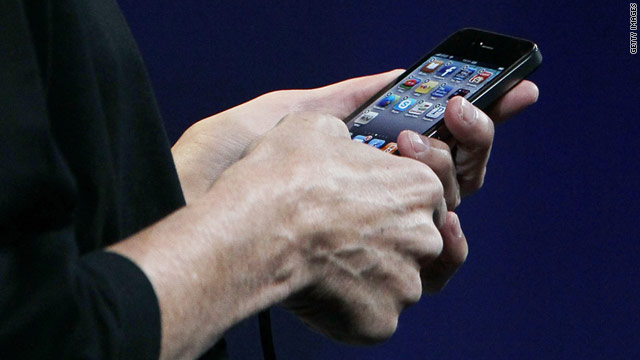Two separate class-action lawsuits filed last week in federal court allege that Apple and as many as eight makers of popular applications for the iPhone facilitated the sharing of private information about their customers to advertisers.
Though a recent news report claimed that many apps are sharing this personal data, the lawsuits together target just eight: Dictionary.com, the Weather Channel, internet radio service Pandora, the messaging app textPlus 4, as well as the makers of entertainment or game apps Talking Tom Cat, Paper Toss, Pumpkin Maker and Pimple Popper Lite.
The plaintiff leading one of the suits, Los Angeles County resident Jonathan Lalo, has been using four of those apps on his iPhone, said Dave Stampley, a partner at KamberLaw, which is bringing the case in a San Jose, California, district court.
"Mr. Lalo has had some of these apps since they were first issued -- in some cases, years," Stampley told CNN.
A copy of Lalo's suit, obtained by CNN, claims many iPhone and iPad owners have been "the victims of privacy violations and unfair business practices."
Both cases are seeking class-action status in the hopes of covering all Americans that are allegedly affected. More app developers could be added to the suits, or sued separately, as more plaintiffs join the case, Stampley said.
Lawyers filed the suits in U.S. District Court on behalf of the named plaintiffs and an unspecified number of unnamed plaintiffs.
The other suit was filed Thursday on behalf of three Texas men and a California woman, all of them iPhone owners. It states that "their personal, private information was obtained without their knowledge or consent ... their personal property -- their computer -- was hijacked by Defendants and turned into a device capable of spying on their every online move."
The plaintiffs seek an unspecified amount in compensatory and punitive damages.
An Apple spokesperson could not be reached for comment because its press department is closed for the holidays, said a company message.
Apple recently launched an ad network of its own, though that does not seem to be a target in the suits. Apple has said app makers must obtain users' permission before transmitting data.
The suits follow a December 17 Wall Street Journal article highlighting dozens of apps that reportedly collect usage data and send personal info to advertisers without the user's consent or knowledge.
"I think it was through the Journal," that Lalo discovered the issue and decided to connect with KamberLaw, said Stampley. That investigation by the newspaper claimed that Android apps were also sharing personal info but that the Android platform was less intrusive.
Mobile app data-sharing differs from websites, which commonly use small files called cookies to track users, because smartphone apps can access a device's UDID, an unchangeable string that's embedded in each Apple device.
People can generally delete cookies on most browsers, but they can't change or hide a UDID. This allows advertisers to more reliably tie behaviors to a single iPhone user, for example.



No comments:
Post a Comment